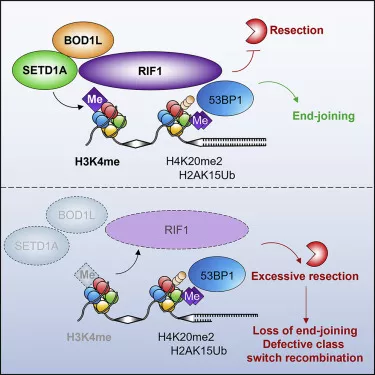Researchers at the University of Birmingham have discovered a new way for cancer cells to repair DNA damage. These new findings reveal the new response of cancer cells to chemotherapy and radiotherapy, and also found a new way for cancer to develop resistance to targeted therapy. These insights may help clinicians decide on different cancer treatment methods, which can be more targeted to treat specific patients.

Repairing DNA damage is crucial for keeping cells healthy and preventing cancer and other diseases. Understanding how DNA repair works is crucial to better understand how cancer develops and how to effectively use anti-cancer treatments such as radiotherapy and chemotherapy to induce DNA damage and kill cancer cells.
In this study published in the journal Molecular Cell on may19,2022, a research team of the Institute of cancer and genomics science of the University accurately pointed out two proteins that had not been found in the process of DNA repair.
These proteins, called setd1a and bod1l, modify other proteins called histones, which bind to DNA. Removing these two proteins changes the way DNA is repaired and makes cancer cells more sensitive to radiotherapy. The loss of setd1a and bod1l also makes cancer cells resistant to some anticancer drugs called PARP inhibitors.
The lead author, Associate Professor Martin Higgs, explained. "This is the first time that these genes are directly linked to DNA repair in cancer. This study may change the way cancer patients are identified as treatment targets and how they develop resistance to different drugs, which will improve the treatment efficiency and the treatment effect of patients.".
The team hopes that this work will eventually lead to the development of new inhibitors that will enable clinicians to re sensitize cancer that has become resistant to certain therapies.